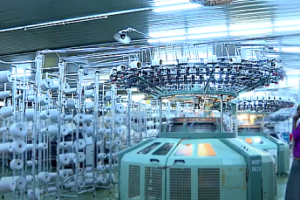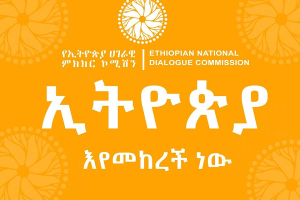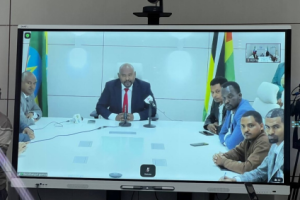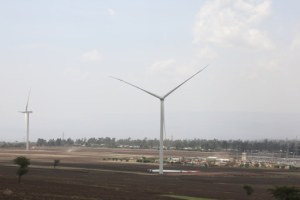
Egypt is constructing the world-most-longest -114 km long artificial river on the Abbay [Nile] river without consulting or informing upper riparian countries that supply the entire amount of the water. The cornerstone of the project was laid last July while Egypt was claiming binding agreement on the utilization of the river.
The political and diplomatic fairness of Egypt remained in doubt as the core reasons behind its hot debate with Ethiopia seem so clear by the ongoing construction of the artificial river.
Egypt had been requesting pre-notifications or no water project on upper riparian countries, and claimed it was almost obligatory. But, it reverses the case when it comes to itself. The long and huge artificial river is being constructed without the recognition even from Ethiopia which supplies over 86 percent of the river water. So, Egypt is clearly playing as master of the river which will never be recognized in modern world, said Ustaz Jemal Beshir, an activist analyst of Abbay River affairs.
Egypt promoted the name Nile as synonymous with itself and scratched [the river] on world tourism map. In preserving this status quo, it has been constructing the artificial river. The surprising fact behind this is that the water originates from Ethiopia. It was good if Ethiopia was consulted. Consultation would help for precautionary measures. Contrary, Egypt is rehearsing self-serving proverbs like ‘Egypt is the gift of the Nile’, he commented.
“Of course, their dream [of the Egyptians] is to control the river from its sources. In ancient times, Egypt waged war on Ethiopia but in vain . It is a sad truth to look modern Egypt sticking to old views ,” Ustaz Jemal said.
They used to conspire and put political pressures on Ethiopia, to preserve their autonomy on the Abbay River. They believe Ethiopia as powerless state to defend its water right. This notion has no longer truth. In any cases, all Egyptian water projects on Nile River are a matter of concern for Ethiopia .
“They will claim stoppage of Ethiopian projects if they face shortage in the new projects. Therefore, it was their obligation to consult with Ethiopian government while planning new projects,” he opined.
Water Researcher and former negotiating team member of the Abbay Dam and Hydro politics Researcher Professor Yacob Arsano (PhD) on his part said that Egypt has never consulted its 86 percent water supplier, Ethiopia while implementing this project.
“During the construction of the Aswan High Dam and other several grand projects; Ethiopia was uninformed and same case happened again last year; the artificial river which will consume the water of Nile river, is being constructed while Ethiopia is officially uninformed yet,” he said.
To Yacob, Egypt has rejected the transnational nature of the river.
As a country claiming better water utilization, Egypt should recognize the right of upper riparian countries. If not, they will face the consequence solely. All Nile -basin countries, including Ethiopia, Sudan and Egypt, should have multilateral water agreement and policy, he suggested.
The development in Egypt should not be a contradictory to Ethiopia and vice versa, he added.
Former Diplomat and Member of Parliament, Ambassador Dina Mufti also agrees with Yacob and Ustaz Jemal, and adds that Ethiopia would not be responsible to inform Egypt until Egypt despises the principle of informing riparian countries about its projects.
“They have been using the water for long time while the upper countries were not beneficiaries. … [] if they [Egyptians] claim notifications from upper-basin countries once again, then the debate will be silly because its multimillion projects are being constructed without the knowhow of others,” he said.
In fact, Ethiopia has never questioned Egypt’s water projects. It has raised no question when Egypt constructs the renowned Aswan Dam. They were expected to show good gestures to appreciate such manifests. It is also only through cooperation to maximize possibilities of utilizing more water. “But, we are witnessing the reverse,” Ustaz Jemal emphasized.
The Ethiopian Green legacy, for example, holds best opportunity to maximize the water volume Egypt is in need of. If not for it, the rain-feed river cannot cover the whole demand as climate change exacerbates droughts each year, he described.
BY YESUF ENDRIS
THE ETHIOPIAN HERALD TUESDAY 2 APRIL 2024





